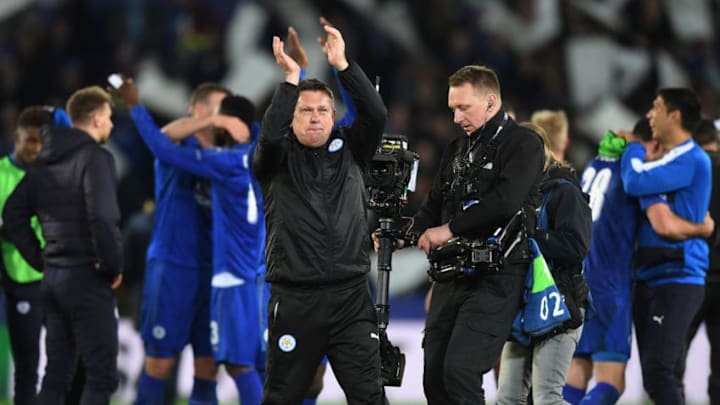Leicester’s season has been transformed in the month since the controversial firing of manager Claudio Ranieri, but how are they doing it?
How Leicester remain the only Premier League team left in the most prestigious club competition in the world is a miracle of modern soccer. If you’re reading this, odds are you’re familiar with the traditional hierarchy in English and European soccer and as such, realize the improbability that a club whose wage bill ranks 11th in the Premier League is in the Champions League quarterfinals. So how are they still thriving at the top of the European soccer pyramid?
Claudio Ranieri’s firing in February was seen as a cruel move on the part of desperate and ungrateful foreign owners lacking any emotional connection and sense of appreciation for the man who had delivered them the most improbable of trophies.
Emotional aspects aside, the sober reality was that Ranieri had relinquished the methods that earned him the Premier League title. As the Foxes sank deeper in the standings, the Italian began a constant tinkering with his lineup, resulting in a loss of identity and leaving the squad feeling unsettled.
When Riyad Mahrez can’t find himself a regular starting spot, you know there’s trouble in paradise. The departure of N’Golo Kante proved a big blow to Leicester’s performance on the domestic front, and without a clear replacement for him, Ranieri began searching for different lineups and formations to make up for the Frenchman’s dominating presence in midfield.
Different players were asked to alter their roles in order to cover more ground than they were used to, as they had to make up for all the space Kante used to cover, or provide more defensive help than they previously had been. All this came at a cost for the team, as the Foxes’ unit became more unbalanced and players grew frustrated with their manager.
As soon as he stepped into the head coaching role, Craig Shakespeare seemed to understand that his role as caretaker would entail minimal meddling tactically. What Leicester desperately needed was the sense of calm and confidence that usually comes with having a regular formation and lineup.
Shakespeare went back to the same well of success that brought Leicester the Premier League title: the 4-4-2, with 20-year-old Nigerian Wilfred Ndidy a straight replacement for Kante in the defensive midfield role, and Danny Drinkwater beside him providing support in central midfield.
The young Ndidy is very much a work in progress but his presence as a bona fide defensive midfielder allows the rest of the remaining cast to (re)settle in to the formation and play up to their strengths. Mahrez is back to tormenting opposing defenses with his runs on the right flank and Jamie Vardy seems to have found his nose for the goal.
In the process, Leicester have regained their sense of identity as a counterattacking team that has perfected the simple things, as adept at quick transition offense or counterattacking as they were during their league-winning campaign.
Related Story: 25 best club soccer teams of all time
Leicester have won all their games under Shakespeare, including a 2-0 win over Sevilla, the bookmaker’s favorite to advance, a victory that saw them go through to the Champions League quarterfinals. They’re six points clear of relegation and a long way from the struggle and drama they were experiencing in the late stages of the Ranieri regime. After a bump in the road, the Leicester fairytale continues.
